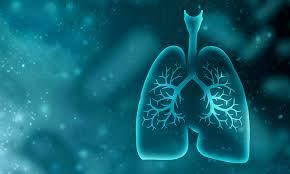Africa might not be able to meet the global target to eliminate Tuberculosis. This is according to a new survey by the World Health Organization-WHO.
As part of the WHO End TB Strategy, countries are supposed to reduce the number of new TB cases by 80 percent and cut deaths by 90 percent by 2030.
According to the UN health agency, inadequate investment and funding for tuberculosis (TB) control in Africa is jeopardizing the efforts to meet the global target of ending the disease by 2030, while the COVID-19 pandemic threatens to roll back progress made so far in the continent.
Annually at least USD 1.3 billion is required for TB prevention and treatment. However, figures from WHO show that there is a 44 percent shortfall the funding because countries only contribute 22 percent while external funding gives 34 percent.
Due to such funding gaps, detection of the disease remains low, which leaves many sick people, not on treatment. For instance, out of an estimated 2.5 million TB cases in 2020 in Africa, only 1.4 million were detected and put on treatment. On average, 56% of cases were detected and enrolled on treatment between 2015 and 2020.
Underfunding was worsened by the COVID-19 pandemic which is believed to have slowed the progress made against the disease.
Globally, deaths from TB rose for the first time in a decade. Africa reported 549 000 deaths in 2020, an increase of around 2000 over 2019. The number of newly detected TB cases also fell in high burden African countries due to disruptions by the COVID-19 pandemic on health services.
For instance, Gabon reported the steepest decline, with the number of newly detected cases falling by 80 percent in 2020 from the year before. Botswana reported a 20 percent decline and Lesotho 35 percent.
In addition to the above, 28 percent fewer patients with drug-resistant TB were detected in Africa in 2020 compared with the previous year. In South Africa, which detects the largest number of drug-resistant TB cases in the continent, 48 percent fewer people with the drug-resistant strain were detected in 2020 compared with 2019.
While speaking at a press briefing to mark World TB Day on Thursday, Dr Matshidiso Moeti, the WHO Africa region director says while the continent has made strides in fighting TB, more investment is needed if the continent is to pick up from where its progress stood before the COVID-19 pandemic.
“Tuberculosis is preventable and treatable, and millions of lives have been saved. We must end the chronic underinvestment that keeps the tuberculosis burden high, leaves a huge number of cases undetected, and undermines prevention and treatment. “Africa has so far made good progress against tuberculosis and we cannot afford to lose focus on what is needed to ease the burden and save lives,” she said.
The African region is home to 17 of the 30 high-burden TB countries globally. The estimated 2.5 million cases in the region in 2020 accounted for a quarter of the global burden, with more than half a million African lives sadly lost to this curable and preventable disease.
However, a WHO survey on the cost of tuberculosis treatment in 10 African countries showed that 49% of TB-affected households experienced catastrophic costs. No country in Africa has yet demonstrated that it has met the target that no TB-affected households face catastrophic costs.
“The road to ending tuberculosis is likely to get long and hard as key milestones risk being missed. Countries must scale up and speed up the response and stay committed to alleviating the suffering and death caused to millions of people due to tuberculosis,” Dr. Moeti said.

